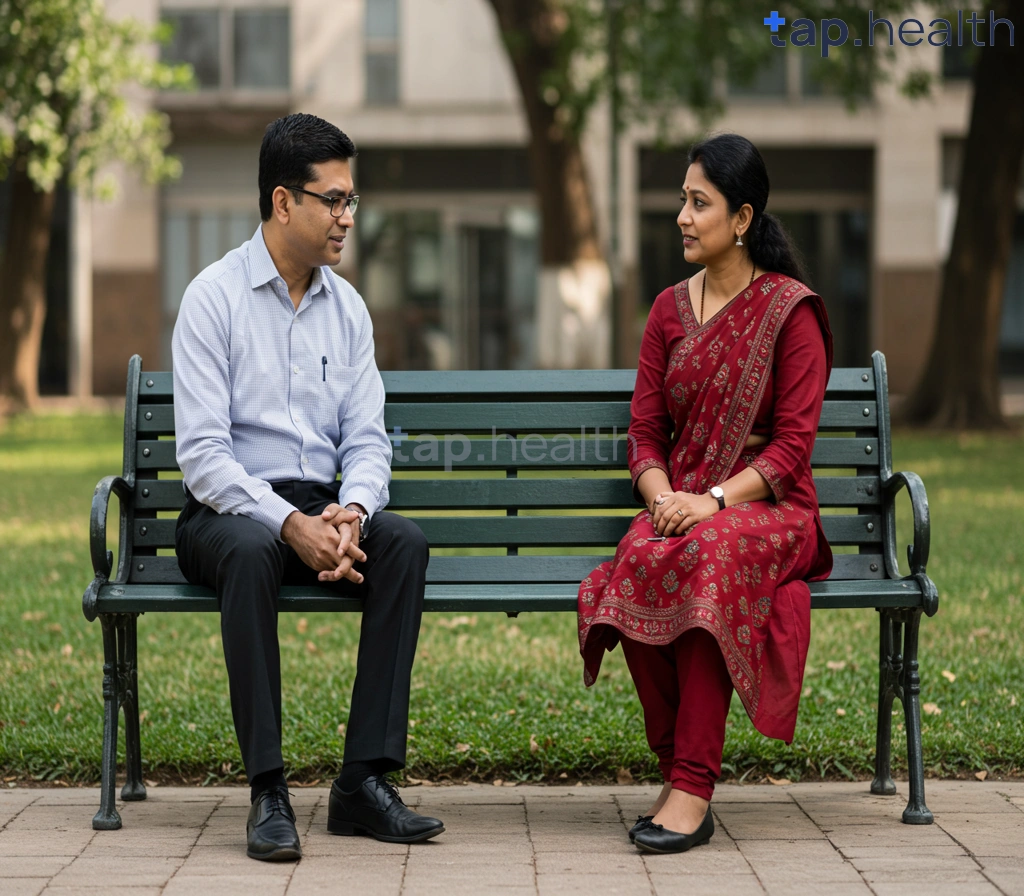Table of Contents
- Understanding Type 1 and Type 2 Diabetes: A Comprehensive Guide
- Key Research Discoveries: New Treatments and Prevention Strategies for Diabetes
- Diabetes Research Breakthroughs: Improving Management and Quality of Life
- What are the Latest Advances in Diabetes Research?
- Diabetes Prevention: Lifestyle Changes and Emerging Scientific Findings
- Frequently Asked Questions
- References
Living with diabetes, or supporting someone who does, can feel like navigating a constantly evolving landscape. New research emerges regularly, offering hope and changing our understanding of this complex condition. That’s why we’ve put together this blog post focusing on Understanding Diabetes: Key Research Discoveries and Their Impact. We’ll explore some of the most significant breakthroughs, from advancements in treatment to improved self-management strategies, and discuss how these discoveries are transforming the lives of millions. Get ready to delve into the latest insights and empower yourself with knowledge!
Understanding Type 1 and Type 2 Diabetes: A Comprehensive Guide
Type 1 Diabetes: An Autoimmune Response
Type 1 diabetes, affecting approximately 2 million Americans, including about 304,000 children and adolescents, is an autoimmune disease where the body’s immune system mistakenly attacks and destroys the insulin-producing beta cells in the pancreas. This results in an absolute lack of insulin, a hormone crucial for regulating blood sugar levels. Early diagnosis and rigorous insulin management are vital for preventing long-term complications. In India and tropical countries, access to insulin and ongoing healthcare can be a significant challenge, emphasizing the need for improved healthcare infrastructure and awareness campaigns. For parents of children with Type 1 Diabetes, this guide offers helpful tips and advice.
Type 2 Diabetes: Insulin Resistance and Lifestyle Factors
Type 2 diabetes, the more common form, is characterized by insulin resistance, where the body’s cells don’t respond effectively to insulin, and eventually, the pancreas may not produce enough insulin. This often develops gradually and is strongly linked to lifestyle factors like poor diet, lack of physical activity, and obesity. The prevalence of type 2 diabetes is rising rapidly in India and other tropical nations due to changing lifestyles and dietary habits. Early detection through regular blood sugar checks, coupled with lifestyle modifications like adopting a balanced diet, increasing physical activity, and managing weight, is crucial for effective management. Understanding the key differences between Type 1 and Type 2 diabetes can be helpful; this resource details the symptoms and causes of each type.
Managing Diabetes in Tropical Climates: Key Considerations
Living with diabetes in hot and humid climates presents unique challenges. Dehydration can significantly impact blood sugar levels, requiring careful hydration management. Infections are more common in tropical regions, and poorly controlled diabetes increases susceptibility. Therefore, individuals in India and other tropical countries must prioritize maintaining good hygiene and seeking prompt medical attention for any infection. Access to affordable healthcare and regular check-ups are essential for successful diabetes management in these regions.
Taking Charge of Your Health
Regular check-ups, including HbA1c testing, are crucial for monitoring blood sugar levels and preventing complications. Seek advice from your doctor or a certified diabetes educator on developing a personalized management plan tailored to your needs and the specific challenges of your region. Together, we can improve diabetes management and improve the quality of life for millions.
Key Research Discoveries: New Treatments and Prevention Strategies for Diabetes
Understanding the Disease Burden in India and Tropical Countries
Diabetes is a significant health concern globally, particularly impacting India and other tropical nations. Research consistently highlights the alarming rise in diabetes cases within these regions, often linked to lifestyle factors. This underscores the critical need for effective prevention strategies and accessible treatments. Studies show that up to 80% of Type 2 diabetes cases can be delayed or prevented through lifestyle changes. Lifestyle modifications, such as adopting a balanced diet and increasing physical activity, are crucial preventative measures.
Promising Advances in Diabetes Management
Recent research has yielded exciting advancements in diabetes management. New medications are emerging, offering improved glucose control and reduced long-term complications. Furthermore, technological innovations, like continuous glucose monitors and insulin pumps, enhance self-management for individuals with diabetes. These advancements are particularly relevant for India and tropical countries, where access to healthcare can sometimes be limited. Focusing on early detection and proactive management is key to minimizing the impact of diabetes. For more on how technology is improving diabetes management, see our article on How Can New Technological Advances Improve Diabetes Lifestyle?
Actionable Steps for Prevention and Control
Given the high prevalence of diabetes in India and tropical countries, adopting a proactive approach is crucial. This involves regular health check-ups, particularly for individuals at high risk due to family history or lifestyle factors. Prioritizing a healthy diet rich in fruits, vegetables, and whole grains is vital, alongside incorporating regular exercise into daily routines. For those already diagnosed, adhering to prescribed medications and engaging in self-management education programs are essential for optimal health outcomes. These steps, combined with the latest research and advancements, offer hope for improved diabetes management and a healthier future. It’s important to remember that while lifestyle changes are key, Safe and Effective Dietary Supplements for Diabetes Care can also play a supporting role, but should always be discussed with your doctor.
Diabetes Research Breakthroughs: Improving Management and Quality of Life
The global burden of diabetes is staggering. The World Health Organization reports a dramatic increase, from 200 million people in 1990 to 830 million in 2022. This alarming rise necessitates continuous advancements in diabetes research, particularly relevant in Indian and tropical countries where prevalence is high and access to healthcare can be limited.
Improved Glucose Monitoring & Insulin Delivery
Recent breakthroughs in continuous glucose monitoring (CGM) systems offer individuals with diabetes greater control over their blood sugar levels. Miniaturized sensors and improved data analysis provide real-time insights, facilitating proactive management and reducing the risk of complications. Similarly, advancements in insulin delivery, including smart insulin pens and automated insulin delivery systems, simplify treatment and improve adherence. These technologies are crucial in regions like India, where managing diabetes often requires significant lifestyle adjustments.
Lifestyle Interventions & Prevention Strategies
Research emphasizes the critical role of lifestyle interventions in diabetes management and prevention. Studies highlight the benefits of a balanced diet emphasizing whole grains, fruits, and vegetables, alongside regular physical activity. These interventions are especially vital in tropical countries where dietary habits and physical activity levels may require tailored approaches. Promoting awareness and access to culturally appropriate dietary guidelines and exercise programs is crucial for improving diabetes outcomes in these regions. For more on creating a personalized approach, see our blog on Personalized Diabetes Control: Your Key to Better Health.
Focus on Long-Term Complications
Research continues to explore ways to mitigate the long-term complications of diabetes, including heart disease, kidney failure, and nerve damage. Early detection and effective management of these complications are critical to improving quality of life. In India and tropical countries, where access to specialized care may be limited, community-based programs focused on early detection and preventative care are essential. The challenges of managing diabetes as you age are also significant, as discussed in Managing Diabetes as You Age: Challenges and Solutions.
Conclusion
Diabetes research is continuously evolving, offering hope for improved management and quality of life for millions. In India and tropical countries, focusing on accessible technology, culturally sensitive lifestyle interventions, and early detection programs is key to tackling this growing health challenge. Let’s work together to improve diabetes care and support within our communities.
What are the Latest Advances in Diabetes Research?
The global burden of diabetes is staggering. Data from the IDF Diabetes Atlas projects a rise in the number of people with diabetes, from 536.6 million in 2021 to a projected 783.7 million by 2045. This alarming increase, particularly prevalent in Indian and tropical countries, underscores the urgent need for advancements in diabetes research and management.
Promising Avenues in Diabetes Research
Recent research focuses on several key areas. Improved glucose monitoring technologies, including continuous glucose monitors (CGMs), offer individuals more control over their blood sugar levels. Furthermore, advancements in insulin delivery systems, such as smart insulin pens and insulin pumps, enhance convenience and precision. Beyond technological advancements, research into the underlying causes of Type 2 diabetes is yielding insights into lifestyle interventions and potential preventive strategies. This includes a greater understanding of the role of genetics, diet, and physical activity, particularly relevant to the diverse populations of India and other tropical regions. The increasing use of AI in monitoring and managing diabetes is also showing promise.
Regional Considerations for Diabetes Management
In India and tropical countries, access to healthcare and advanced technologies can be a significant barrier. Research focusing on affordable and culturally appropriate interventions is crucial. This includes promoting healthy diets adapted to local food sources, and implementing community-based programs to improve awareness and access to care. Furthermore, considering the prevalence of infectious diseases in these regions, researchers are investigating the interplay between infections and diabetes management. Addressing these specific regional challenges is vital to mitigating the impact of the rising diabetes prevalence. Understanding how diabetes affects blood flow is also critical in these regions, given the potential for increased cardiovascular complications.
Taking Action
The fight against diabetes requires a multi-pronged approach. Stay informed about the latest research, adopt a healthy lifestyle, and seek regular medical check-ups. Early detection and proactive management are crucial for preventing serious complications and improving quality of life. Together, we can make a difference in the lives of millions affected by this growing global health concern.
Diabetes Prevention: Lifestyle Changes and Emerging Scientific Findings
Combating Diabetes in Indian and Tropical Countries
Diabetes disproportionately affects the working-age population in many Indian and tropical countries. A significant 61% of people with diabetes are aged between 20-64 years, according to the International Diabetes Federation (IDF Diabetes Atlas), impacting productivity and economic stability. This highlights the urgent need for effective prevention strategies tailored to these regions.
Lifestyle Interventions: A Powerful Approach
Lifestyle modifications are crucial for preventing type 2 diabetes, especially given the high prevalence among the 20-64 age group. This includes maintaining a healthy weight through regular exercise and a balanced diet rich in fruits, vegetables, and whole grains. In tropical climates, access to fresh produce is often abundant, presenting a unique opportunity to leverage dietary habits for diabetes prevention. Managing stress levels through yoga, meditation, or other relaxation techniques is also vital, given its impact on blood sugar regulation. For those already diagnosed, learning 10 Proven Tips for Effective Diabetes Management can significantly improve their quality of life.
Emerging Scientific Research: New Hope
Recent research is exploring innovative approaches to diabetes prevention. Studies are investigating the role of specific nutrients, gut microbiota, and personalized medicine in reducing diabetes risk. These advancements, combined with traditional practices and culturally sensitive interventions, hold immense potential for improving health outcomes within specific communities. For example, incorporating traditional Indian spices known for their anti-inflammatory properties into the diet could offer additional benefits. It’s also crucial to understand the link between diabetes and heart health; check out Protect Your Heart from Diabetes: 5 Essential Steps for more information.
Taking Action: A Call to Prevent Diabetes
The high prevalence of diabetes among the 20-64 age group in India and tropical countries necessitates proactive measures. By adopting healthy lifestyle choices and staying informed about emerging research, individuals can significantly reduce their risk of developing this chronic condition. Empowering communities with knowledge and resources is crucial in combating the growing burden of diabetes and ensuring a healthier future. The remaining 39% of individuals diagnosed with diabetes are aged 65+, further emphasizing the need for early intervention and lifestyle changes across all age groups.
Frequently Asked Questions on Understanding Diabetes: Key Research Discoveries and Their Impact
Q1. What is the difference between Type 1 and Type 2 diabetes?
Type 1 diabetes is an autoimmune disease causing insulin deficiency, while Type 2 diabetes involves insulin resistance and is strongly linked to lifestyle factors like diet, activity levels, and obesity.
Q2. What are the challenges of managing diabetes in tropical climates?
Managing diabetes in tropical climates presents unique challenges such as dehydration and an increased risk of infections.
Q3. What are the key lifestyle interventions for preventing and managing diabetes?
Healthy diets, regular exercise, and weight management are crucial lifestyle interventions for preventing and controlling diabetes.
Q4. What are some of the recent advancements in diabetes management?
Promising advancements include improvements in glucose monitoring and insulin delivery systems.
Q5. What role does early detection and access to healthcare play in managing diabetes, especially in resource-limited settings?
Early detection and personalized management plans, along with accessible healthcare, are crucial for mitigating the impact of diabetes and improving quality of life, particularly in regions with limited resources. Culturally sensitive interventions and community-based programs are also vital.
References
- A Practical Guide to Integrated Type 2 Diabetes Care: https://www.hse.ie/eng/services/list/2/primarycare/east-coast-diabetes-service/management-of-type-2-diabetes/diabetes-and-pregnancy/icgp-guide-to-integrated-type-2.pdf
- Children with Diabetes : A resourse guide for families and school. : https://www.health.ny.gov/publications/0944.pdf



